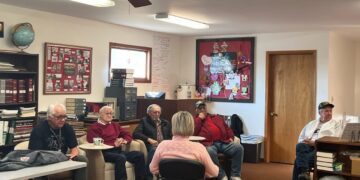SPRINGFIELD – Illinois' constitution doesn't provide for voters to directly determine public policy as referenda do in states like California, but voters will be the only way to make drawing Illinois' maps fairer, but that's the only recourse available to Illinoisans after the decisions the US Supreme Court released Monday.
According to Jeff Raines, Communications and Engagement Director of CHANGE Illinois, “The Supreme Court’s position on gerrymandering this term will only encourage entrenched politicians to manipulate the maps in 2021, cementing their mistaken belief that their personal and party gain outweighs the constitutional rights of the American people. It’s clear that we can’t rely on the courts to save us from this nefarious political practice. It’s going to take people power to end gerrymandering in Illinois and around the country.”
Raines confirmed there are two pathways to get a fair maps amendment on the ballot. First, the citizens' advisory petition and second, the General Assembly placing constitutional amendments on the ballot after a 3/5ths majority vote.
A petition drive to put an advisory referendum on the ballot still has no teeth to become law without lawmakers' follow through. So CHANGE Illinois explained to Illinois Review their alternative plan.
On Monday, the U.S. Supreme Court issued a 5-4 decision in the Texas racial gerrymandering case: Abbott v. Perez, which challenged the state’s legislative and Congressional districts as unconstitutional. The Court found that only one of the state’s legislative districts crossed the line into a racial gerrymander, approving the rest of the maps for the November election. The U.S. District Court in Texas that previously heard the case found the maps to be unconstitutional in a 3-0 decision.
The Supreme Court also announced that it would not hear Rucho v. Common Cause, a North Carolina partisan gerrymandering case, in its fall term, sending the case back to district court for further consideration. This decision to remand the case to lower court means that there will not be a partisan gerrymander case on the Supreme Court’s docket, leaving the constitutionality of the issue unresolved for the near future.
In the last page of her 46-page dissent for the minority, Justice Sonia Sotomayor stated, “The Court today does great damage to that right of equal opportunity. Not because it denies the existence of that right, but because it refuses its enforcement. The Court intervenes when no intervention is authorized and blinds itself to the overwhelming factual record…”







